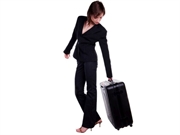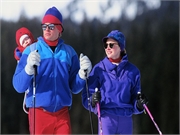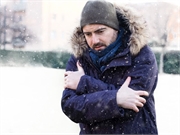
If you travel a lot for business or pleasure, you may think that the most exercise possible is lugging your bags in and out of a car or through an airport. But it’s important to get in real exercise even when you’re away from home. If you’re a business road-tripper, look for snippets of time… read on >

























